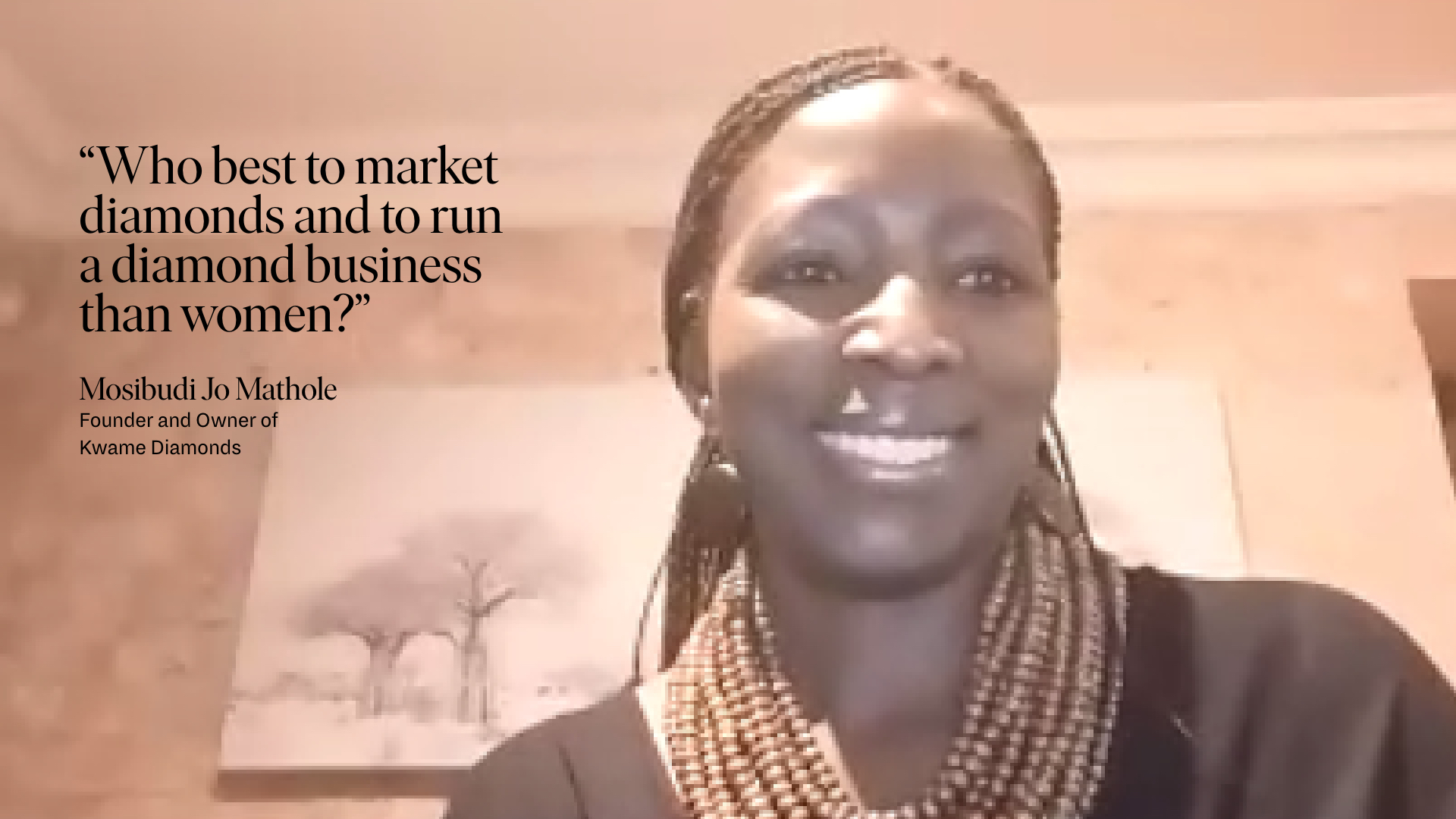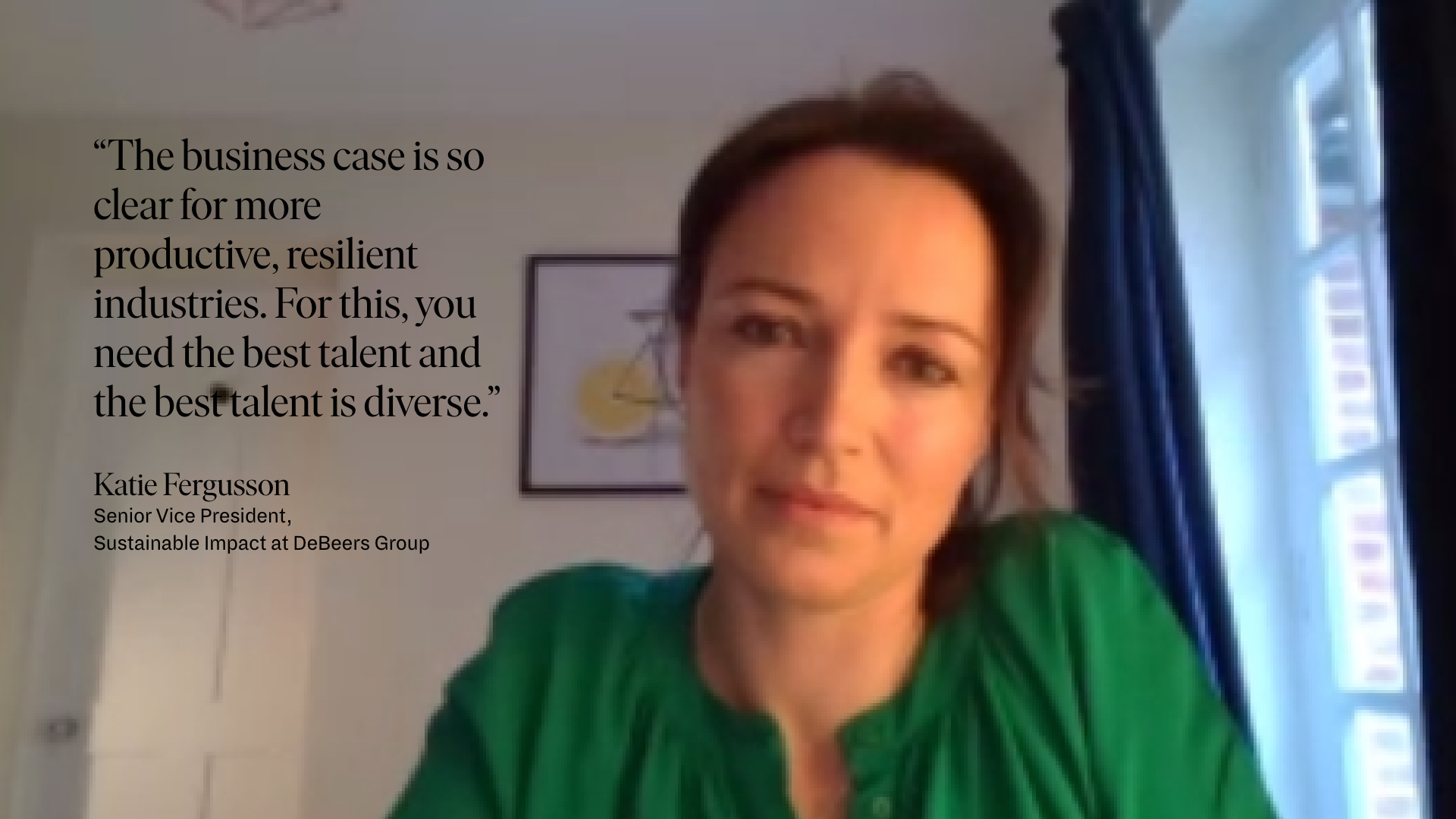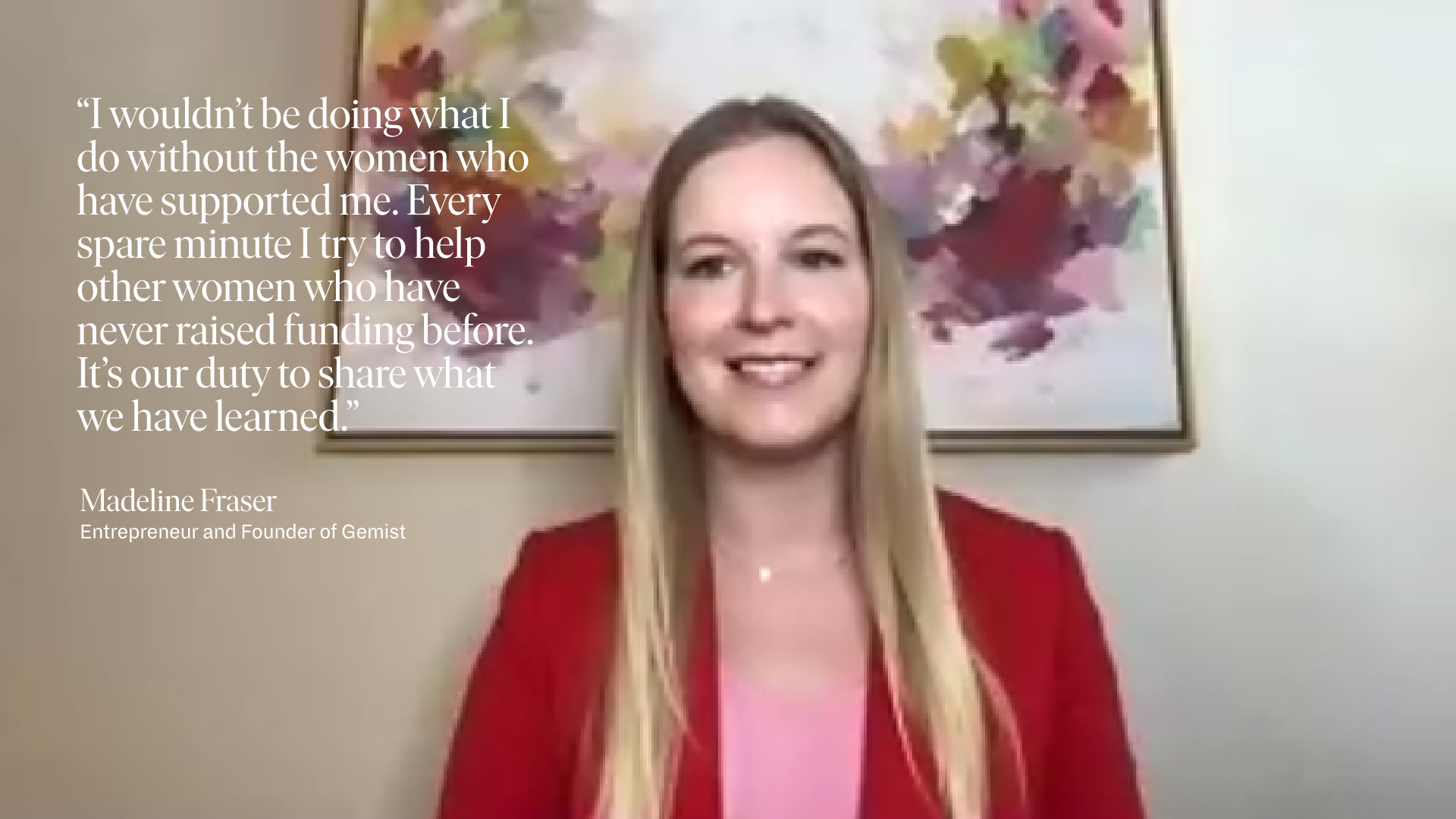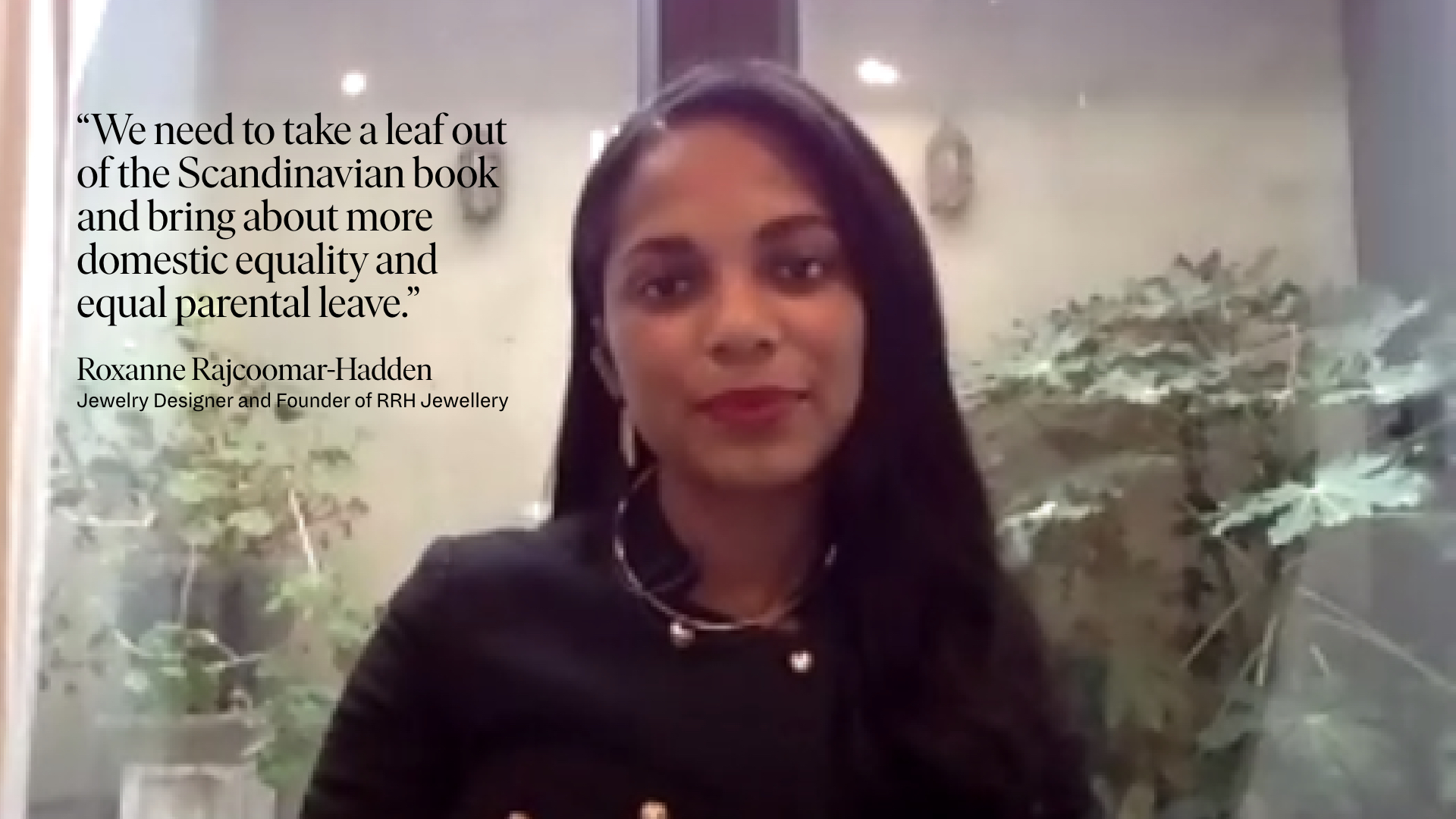“The Future is Female” Panelists for International Women’s Day 2021 Tell Us How They #ChooseToChallenge
Our “The Future is Female” panelists for International Women’s Day 2021 tell us how they #ChooseToChallenge in the Diamond World…and beyond.
Do you remember what you were doing on International Women’s Day in 2020? For a lot of us, there is a distinct possibility that at some point that day, we saw a friend or colleague and shared a real-world moment that marks this global date. One thing is certain: for all of us, the world was a very different place.
Fast forward to IWD 2021. No matter what industry we come from, for the past twelve months, we have all been working from home, living completely digital lives. What wouldn’t we give to have these moments together? But during our panel, a sense of unity and connection ignited every minute. From taking risks and disrupting markets, to helping other women up the ladder and fighting for equal parental leave, the conversation grew in an honest and frank way, giving women and men alike a lot to learn from.

Host Melanie Grant, journalist, author and luxury editor of The Economist’s 1843 magazine starts off the discussion by asking jewelry designer Mosibudi Jo Mathole – founder and owner of Kwame Diamonds – how she broke into the industry from a career in banking with no experience, connections or contacts.
“I was a black woman in this male, white-dominated industry. I didn’t have any existing networks, or the required experience or expertise. It made me a misfit and made me have to work twice as hard. My mother was like, ‘you’re going to leave a well-paid job to become this thing we don’t know?’, but I was strong-willed and believed this was the path I wanted to follow. We don’t come from a rich family, we don’t have trust funds or inheritance. My sister and I had to put together our pension and providence funds to start our business.”
After the financing was raised, there were further hurdles, but as a female entrepreneur, Jo’s conviction that she understood her customer drove her to succeed. “I needed to align myself with the right people to be able to open the doors. You earn your stripes, only then do people start opening up.”
As well as setting up an all-female team of African diamond cutters, giving skills to women in townships who may otherwise have had few opportunities to earn money and contribute to their family and community, Jo and her sister Khomotso have created an incredible 67-facet diamond called the Ocean Flower as a tribute to Mandela’s legacy, which has inspired a new collection in its name.
So how important is innovating and risk-taking for women trying to break into such a male dominated industry ?
“Disruption,” says Jo, simply. “I believe as a business you have to be able to re-invent yourself, go against the tides and grain, to set yourself apart. 80% of diamonds are consumed by women. We wanted to change the narrative from ‘diamonds are a girl’s best friend’ to ‘women know diamonds best’. Who best to market diamonds and to run a diamond business than women? I am passionate about that.”

Disruption is definitely something that every woman on today’s panel knows a lot about. A decade ago, being a woman in any corporate leadership role was disruptive enough – times this by ten in the world of diamond mining. Katie Fergusson, Senior Vice President of Sustainable Impact at De Beers Group, reflects on what it was like: “I was the only woman in an all-male leadership team, I was 10-15 years younger than my colleagues and I was working in a second language. It was high-pressured and the team was dealing with complex challenges. They made it clear from the beginning even without knowing me or giving me a chance that they didn’t think I was going to be able to do the job. It was stressful and isolating and I’m sure it resonates with many people listening.”
“What you need to do in these situations is dig deep and get really stubborn. Look for a network, look for support, don’t give up – it will give you the courage in other similar challenges.” Needless to say, Katie proved her doubters wrong and spent over four years working successfully in Peru.
Grit and determination are a theme in the talk. But what of mentoring and sponsorship? How do those two things differ and what experiences do our panel guests have of either?
“Mentorship is all about giving advice and guidance, so people can understand their strengths,” explains Katie. “Sponsorship is about someone more senior than you in your network advocating for you. Sponsors are deliberate and proactive, making sure you are included in discussions that could further your career. Women and men both have mentors but it tends to be men who have sponsors – and this is all linked to unconscious bias and how as humans we support people who have similar skills and behaviours to us.”
This is a challenge, Katie explains, for younger people in the workforce. “As we continue to work more remotely than before, it can be that more junior members of the team are not as visible to senior leadership and it’s important to make sure they are getting the recognition they deserve.”
So how do women seek out a sponsor to elevate their careers?
“A mentor and sponsor don’t need to be two different people,” says Katie. “If you’ve got a good mentor you can talk about your career aspirations and opportunities you see coming up. Look to those people who are in those conversations. Start to create those networks.”
“The main thing I would say,” advises Madeline Fraser, entrepreneur and founder of Gemist, “is that you have to have clarity in what you need and have a path. It might come down to writing the email for [your sponsor] and they can spice it up. Never stop being persistent. You may have to ask five times, six times, you just have to get in there and if you have clarity in what you need you can do it.”
“And if they have ten minutes on a Friday at 6am, go to where they are and make it work!” adds Melanie. “And look to offer some sort of skill in return like a networking opportunity, then it’s a more equal relationship long term.”
And how can we ensure more women of every age get a chance to rise? Is it up to women in senior positions to reach down and help others up the ladder?

Madeline says: “I wouldn’t be doing what I do without the women who have supported me. Every spare minute I try to help other women who have never raised funding before. It’s our duty to share what we have learned. I’ve been lucky enough in my career to have incredible support I can call on at a moment’s notice and say ‘help, I’ve hit a wall, how do I move forward?’ Without that I don’t think I could do this every day.”
In an industry where consumers are overwhelmingly women but few women are at the top, what will it take to effect real change?

“I see a lot more unity at the moment with women, that is great to see,” says Roxanne Rajcoomer-Hadden, jewelry designer and Founder of RRH Jewellery. “But I think in the jewelry industry and all industries we need to take a leaf out of the Scandinavian book and bring about more domestic equality and equal parental leave.”
Katie Fergusson agrees. “I think things are changing, I think there is more awareness, more focused action, it’s whether things are changing fast enough. The business case is so clear for more productive, resilient industries, you need the best talent and the best talent is diverse.
And men can play a part too. As Madeline adds: “I think it’s really hard when it’s all about men and women, I think it has to become more equal. There are so many men out there who are fantastic and willing to help, so it’s not just on us – it’s about all of us coming together.”
This is an area where De Beers Group is showing real leadership and commitment, announcing this week that it is extending its global partnership with UN Women for a further five years. By joining the HeForShe Alliance, the company is committing to increase the representation of women in technical and leadership roles within its business, working towards gender parity across its workforce by 2030.
Beyond its own workforce, De Beers Group offers scholarships to support young women pursue STEM subjects in Canada, and runs STEM workshops and mentorship opportunities for girls in southern Africa in partnership with WomEng. Through its Building Forever goals, the business has committed to engage a further 10,000 girls in STEM – STEM being increasingly important as more and more work is being created and driven online, as well as to support 10,000 women micro-entrepreneurs by 2030.
In this post-Covid world, as we ramp up our digital lives and connections, what is clear from this International Women’s Day panel is that we need to work together and find a way to bring more equal and diverse talent to the top – following the lead of global businesses like De Beers Group or creating our own women-owned businesses that give women opportunities they would never have had before. For those of us who can be sponsors and mentors, this is also a goal – for those who need them, we should find a way to ask for support. These women have all been there. They #ChoooseToChallenge, they drive this through their businesses and their daily lives – and they can inspire us every day.
Our “Future is Female” panels are a series of frank conversations that we host periodically with brilliant women who challenge the status quo, follow their passion and innovation in the diamond jewellery industry and beyond! In case you missed it, here is our previous panel.
